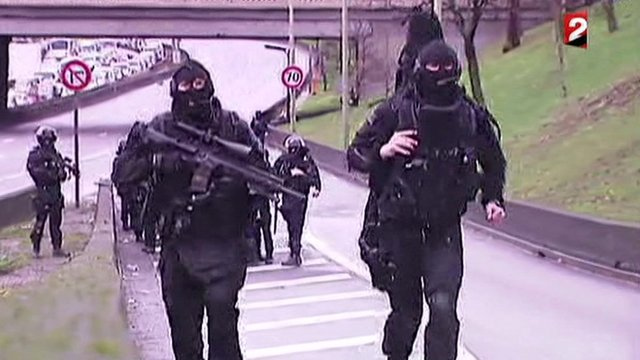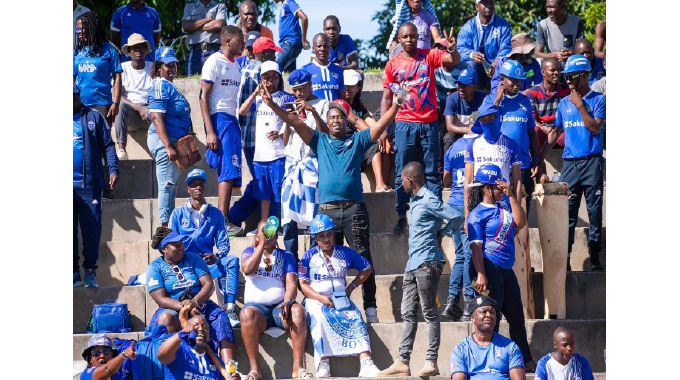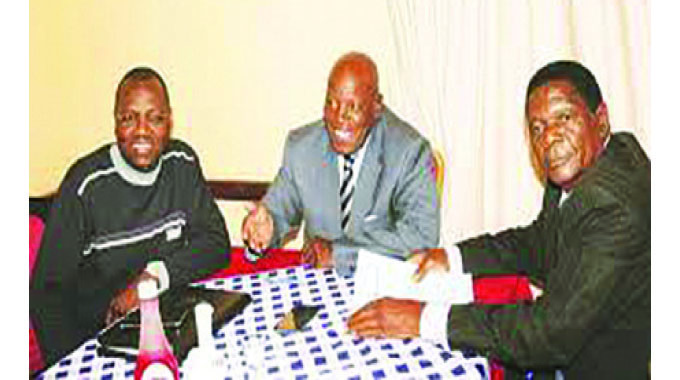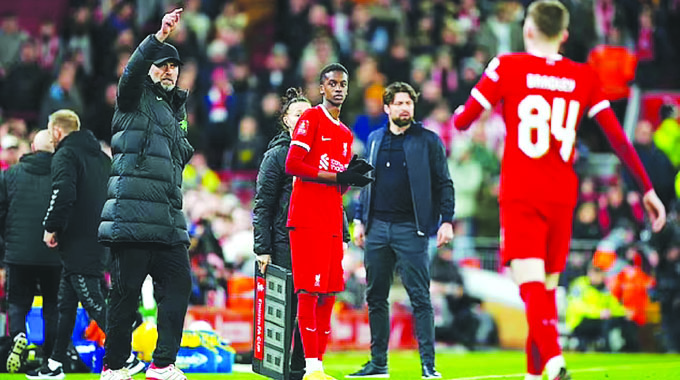There are a lot of football fans who wish Kalusha Bwalya was one of us
FOOTBALL fans in this country have always considered Zambia and South Africa as our biggest rivals and, it’s not a coincidence, that two of our game’s enduring moments came in matches against our two neighbours.
On July 25, 1993, the Warriors stood on the threshold of ending a 13-year nightmare, needing just a win to qualify for their first Nations Cup appearance, in what would have signalled the coming of age of a Dream Team that had charmed an entire nation.
For about 80 minutes, Reinhard Fabisch and his men were on course, thanks to a first-half goal by Henry McKop, but a rare header by Kalusha Bwalya silenced 60 000 Zimbabweans at the National Sports Stadium, and millions more at home, as Zambia forced the draw they needed to qualify.
That the Zambians went on to reach the final of that Nations Cup, taking the silver medals after a brave 1-2 loss to Nigeria in Tunisia, only rubbed coarse salt into our emotional wounds as it provided the emphasis, if ever one needed it, of how good our Dream Team was.
There are many Zimbabweans I have met, on my travels around the world, who have told me that, for them, the music died that afternoon and their love affair, with football, took such a huge blow the passage of time has failed to heal the wounds.
Seven years after Kalusha silenced us all, with one twist of his neck and a connection with the ball that produced a flight path that evaded Bruce Grobbelaar’s radar, the National Sports Stadium was once again the theatre of tears for thousands of local football fans.
This time, tragedy struck, the number 13, just like in 1993 when we were set to exorcise the ghost that had haunted us for 13 years by securing our first Nations Cup finals ticket, was again dominant, as 13 fans lost their lives in a stampede during a 2002 World Cup qualifier.
South Africa were the opponents and such was the intensity of our rivalry that even though Bafana Bafana had won the Nations Cup in 1996, had finished runners-up at the same tournament in Burkina Faso in 1998 and also graced the World Cup in France that same year, we still believed that we were good enough to beat them.
Thousands of Zimbabweans marched to the giant stadium, bullish that the South Africans would be beaten in this derby showdown, and confident that their growing reputation on the continent and in the world could count for nothing.
But July, once again, proved a bad month for us and the men from the south of the Limpopo were cruising to victory, having just scored the second goal, when pandemonium broke out and in the madness that followed, 13 fans didn’t go back home to tell their story.
Bafana Bafana went all the way to the 2002 World Cup finals and, after a period in which they lost their way, they are back as a force, unbeaten since coach Shakes Mashaba took over and, in the revolution sparked by Danny Jordaan’s rise to become the SAFA president, have qualified for their first Nations Cup finals since they played at the 2008 edition of this tournament in Ghana.
This week, Bafana Bafana left Johannesburg for that adventure in Equatorial Guinea, where Mashaba believes his men, who are in the toughest group of the finals, will stand up to be counted and should be considered as the big horses who can win the tournament.
Jordaan, the man whose Midas Touch has changed South African football, was there at that media conference, when Bafana Bafana were saying goodbye to a nation that has fallen in love with them once again, and said this was just the beginning of good things for the game in that country.
“2015 promises to be a very challenging year for us.
“We currently have three teams in camp. I can’t remember the last time this happened in South Africa,” Jordaan said.
“Equatorial Guinea is not the end of the road, it is the beginning of the road. We are in a group where only the best are.”
Before leaving for Equatorial Guinea, Bafana Bafana played and won a friendly against Zambia, who have been having their training camp in South Africa, ahead of a return to that part of the continent where they scripted an emotional success story in winning the Nations Cup, just three years ago.
Yesterday, Football Association of Zambia president, Kalusha Bwalya, also spoke about the 2015 Nations Cup adventure. “In choosing opposition teams for friendlies at this crucial stage, barely a week before the big AFCON, it is imperative to be wise in so doing,” said Kalusha.
“The main objective is to observe our own team in a match situation, one that does not endanger our players and risk injuries at this late stage.
“Please rest assured that the choice of teams is not made lightly but with thought, experience and technical know-how.
“One needs to look at our previous AFCON preparations, which were undertaken in the exact same manner.”
AND OUR FA PRESIDENT ALSO SPOKE THIS WEEK
Our football leader, Cuthbert Dube, also spoke this week but, unlike his counterparts Jordaan and Kalusha, it wasn’t about us plunging into the Nations Cup finals.
Dube spoke of his relief, in an interview with the NewsDay Sports Editor Wellington Toni, that he has successfully negotiated a debt relief settlement for ZIFA with some of the companies, which are owed by the association, and the debt has significantly come down.
He also spoke to The Herald, pleading with the Government to bail ZIFA out after the association tabled a US$3,2 million budget, for the national teams, which will compete in the 2016 Olympic Games qualifiers and the All-Africa Games.
There was only one comment on the online version of the story in The Herald by about 9pm yesterday and the respondent was not complementary of ZIFA while there were just two comments on the NewsDay online story.
Maybe, that is natural, especially in an environment where football fans in this country, during the current week, also heard the two leaders of Football Associations, whom they take to be our biggest rivals, speaking about where their national teams stand today, and the direction they are taking going forward.
Jordaan, who only came into office 15 months ago, spoke about success, having three national teams that are in camp ready to take on the continent — the Under-17s, Under-20s and Bafana Bafana, who have all qualified for the major tournaments that are held in Africa.
He said Bafana’s adventure in Equatorial Guinea would not be the end of the revolution, and you can understand that, because when you have your national Under-17s beating Egypt, to qualify for the African Youth Championship finals, and your Under-20s beating Cameroon, to qualify for the African Championships, you have a reason to believe that the future looks bright.
Kalusha is also in the same position because his national Under-17s and Under-20s both qualified for the African Youth Championships which will be played this year and what that means is he can bank on the emerging teenage talent to filter into Chipolopolo soon and, whatever happens in Equatorial Guinea, would not be the end for them.
In sharp contrast, our focus is on our Under-23s, who will play in the All-Africa Games and Olympic qualifiers, when the first role of our football leadership should have been to get things right, in terms of the base that will supply the future Warriors, by ensuring that we are putting structures that will make sure our Under-17s and Under-20s will be competitive the next time they plunge into battle.
Certainly, that doesn’t cost US$3,2 million but costs far, far less and needs just the dedication of leaders who know that these boys represent our future, to send coaches to go all over the country, including the rural areas, tapping into the best players between the ranges of 14 and 17.
The football fans in this country have heard this story of the national team being dissolved before, they heard it when the Warriors failed to qualify for the 2013 Nations Cup finals, and they heard it when the Warriors stumbled in the preliminary round of the 2015 Nations Cup finals.
And they know, judging from what has happened in the past, that there is nothing that will come out of it.
They are educated enough to ask questions as to what is the meaning of this dissolution of the national team because, after ZIFA announced that they had dissolved the Warriors following their failure in Luanda, the next Nations Cup commitment was built around the same players, including some on the other side of 30.
They have heard this issue of debt relief, for the last four years, including promises that this monster would be tamed, and it’s something that has been overplayed again and again and, when they read about it again, it just doesn’t interest them anymore because, in the past, nothing happened.
Four years ago they read this story, on the same subject from the same principals, and when they read something like that in 2015, they either ignore it or probably don’t take the issue seriously any more with some even laughing about it.
Zifa to clear debts by August
NewsDay, March 18, 2011
ZIFA president Cuthbert Dube has outlined an ambitious programme to pay off their numerous creditors by August in a bid to have the national association start on a clean slate to attract corporate support.
The new board, which came into office on March 27 2010, inherited debts which have accumulated since 2007 and through successive ZIFA administrations.
The two most crippling debts are those owed to former coaches Brazilian Valinhos and Sunday Chidzambwa, now at Black Leopards in South Africa, who have both engaged lawyers to recover their monies.
The national association will use some of the money from US$250 000 annual grant and the World Cup bonus of US$300 000 to clear the debts, while attempting not to throttle development and administration of the game.
Various other service providers have worked out a payment plan with the national association, which Dube, in an interview with NewsDay Sport, believes will enable his association to clear all outstanding amounts by August.
“It has been a tough start for us because we had to meet with new debts that we were not aware off when we came into office.
“We took over a technically insolvent ZIFA and without these plans we have made, the association could be history by now.
“To date we are still dealing with those issues and we are very lucky that we have been able to work out payment plans with various creditors. That will, at least, ensure that stakeholders and the corporate sector give us an ear when we need assistance.
“TO THIS END, I BELIEVE, WE WILL BE ABLE TO CLEAR ALL DEBTS BY AUGUST OR SEPTEMBER, AT LEAST, TO ALL THOSE CREDITORS THAT WE KNOW.”
He added that ZIFA will restructure its secretariat in due course with interviews for various positions likely to commence immediately after the Annual General Meeting next week.
“It is common knowledge that our image is battered, we need to work on it. Restructuring will take place as soon as possible once interviews have been conducted for the various positions we advertised.”
ZIFA want to spruce image
The Herald, June 14, 2014
With Sport, Arts and Culture Minister Andrew Langa also demanding an improvement in the way football is administered in the country, Dube said their strategic retreat scheduled for the weekend of July 25-27 would spell out new benchmarks that ZIFA need to achieve in the short to long term.
“We are going to have a meeting as ZIFA, an introspection to see what it is and where we are getting it wrong, whether it’s the secretariat, the board, the president and we will have to find ways to come up with a clear vision,” Dube said.
“The Association is seized with retiring the US$5 million debt through a robust approach driven by competent and professional individuals.”
The Zimbabwe Football Trust is also going to be reshuffled while the debt strategy will be adopted at the ZIFA Assembly EGM on the 26th of July 2014.
Debt servicing had already commenced and a debt servicing sub-committee, under the finance committee, is to be ratified by the Assembly.
ZIFA PLEADS WITH GVT
The Herald, January 9, 2015
TROUBLED ZIFA have once again turned to the Government for financial support with the association tabling a US3,2 million budget which they believe will adequately cater for the national teams’ international assignments this year.
ZIFA president Cuthbert Dube said they were making a passionate appeal to the Government to bail them out and become the main funder of Zimbabwe’s bid for places at the Olympic Games, the All-Africa Games.
“We submitted our budget to Government through the Sports Commission last year and we indicated that a budget of US$3,2 million will enable us to cater the men and women’s teams for the qualification phase of their competitions.
“The technical staff of these teams are putting their camping programmes in place and there is a possibility of taking them to mining towns outside of Harare for effective team building,’’ said Dube.
Dube, clearly not amused with some administrative shortcomings at the secretariat, revealed that there would also be a staff rationalisation process at the association.
“This programme will see a human resources audit being carried out and relevant measures being taken where there have been complaints about the need for a skills audit to check whether indeed we are over staffed or we do not have the right people in the right places.’
A STORYLINE THAT BARELY CHANGES
When one reads all these stories, spread over four years, it becomes clear that the storyline is the same, it’s the one that keeps being repeated time and again.
There is always something on debt relief, and that something is being done, and then there is always something on the secretariat, and the promise that something is being done.
The song is the same and what is changing, maybe, is that one is being sung with instruments in the background, the other without instruments, the other is a reggae version, the other a hip-hop version, the other a sungura version.
We have all been listening to the same lyrics, over the past five years, and maybe that explains why we have barely moved an inch, in terms of our game’s development, and why for the umpteenth time we will be supporting adopted teams at the Nations Cup finals in Equatorial Guinea.
Maybe that is why, even against the background of the pain he inflicted on us 20-or-so-years ago that afternoon at the National Sports Stadium, there are some football fans in this country who wish Kalusha was a Zimbabwean.
To God Be The Glory!
Come on United!!!!!!!!!!!!!!!!!!!!!!!!!!!!!!!!
Di Mariaaaaaaaaaaaaaaaaaaaaaaaa!
Text Feedback — 0772545199
WhatsApp Messenger – 0772545199
Email — [email protected]
Skype — sharuko58
- Like my Facebook page, ROBSON SHARUKO JOURNALIST, follow me on Twitter @Chakariboy, interact with me on Viber and on ZBC’s weekly television football magazine programme, GamePlan on Monday nights, or read my material in The Southern Times.








Comments